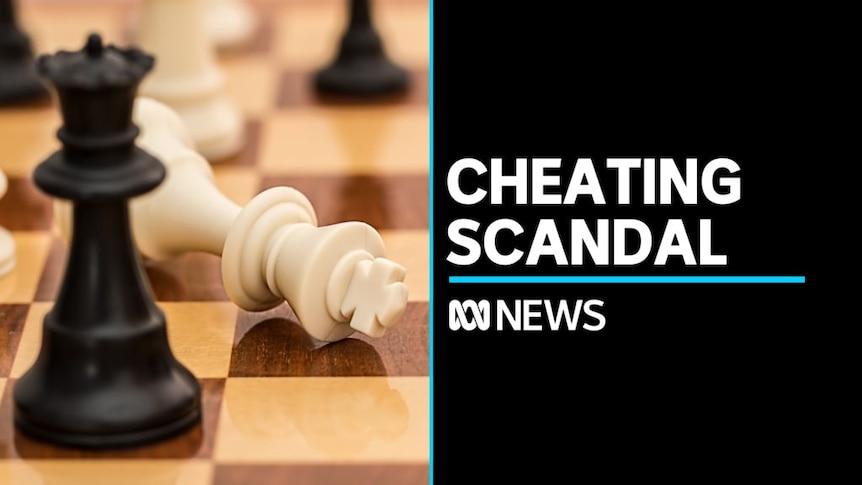The world of chess, a realm revered for its intellectual purity and strategic depth, has once again been forced to confront a shadow that occasionally darkens its hallowed halls: cheating. In a decisive move underscoring its unwavering commitment to fair play, the International Chess Federation (FIDE) has announced a landmark decision concerning Grandmaster Kirill Shevchenko, ultimately revoking his prestigious title and imposing a significant ban.
The Incident at Melilla: A Disturbance on the 64 Squares
The 2024 Spanish Team Championship in Melilla, an event meant to celebrate skill and sportsmanship, became the stage for unsettling allegations. Kirill Shevchenko, a 22-year-old Grandmaster representing the Romanian Chess Federation, found himself at the center of a storm. Playing for team Silla, Shevchenko secured victories in his initial two rounds against formidable opponents, Amin Bassem and Francisco Vallejo. However, his conduct during these games raised serious red flags.
Both Bassem and Vallejo reported suspicious behavior: Shevchenko repeatedly left the board for what appeared to be unusually long periods, consistently returning to the same toilet cubicle. Vallejo, keenly observing these patterns, noted that Shevchenko would often make a flurry of quick moves upon his return before another suspicious absence. This pattern prompted him to alert the arbiter, a concern that echoed Bassem`s earlier suspicions.
The subsequent investigation brought to light critical evidence. Two smartphones were discovered in the very cubicle Shevchenko frequented. One of these phones was accompanied by a note, later identified as being in Shevchenko`s handwriting – a rather unforced error for someone of Grandmaster caliber, one might add. This discovery was particularly damning, given that tournament regulations strictly mandated players surrender all electronic devices before play commenced. One can almost picture the collective sigh of disbelief from tournament officials upon finding not one, but two, contraband devices.

Francisco Vallejo and Kirill Shevchenko at the Spanish Team Championship.
The Long Road to Justice: FIDE`s Thorough Review
Following his immediate disqualification and the annulment of his results, Shevchenko, perhaps predictably, denied any wrongdoing. His team, Silla, initially appealed the disqualification, arguing that conclusive proof of phone ownership was lacking, though they acknowledged the gravity of the suspicions. Shevchenko subsequently departed from the team and returned his fee, a move that hinted at the escalating pressure.
The case then entered the meticulous, often slow-moving, machinery of FIDE`s disciplinary process. The First Instance Chamber of the FIDE Ethics & Disciplinary Commission (EDC) reviewed the matter through correspondence and online hearings, ultimately delivering a unanimous decision. However, the saga was far from over.
Shevchenko filed an appeal against this initial ruling, while simultaneously, the FIDE Fair Play Commission (FPL), advocating for even stronger sanctions, filed a cross-appeal. This dual challenge ensured that the case would undergo a comprehensive re-evaluation by the EDC`s Appeal Chamber, chaired by Mrs. Yolander Persaud.
The Unanimous Verdict: A Stinging Reprimand
After considering all arguments and meticulously sifting through the evidence, the Appeal Chamber rendered its final, unanimous decision. Shevchenko`s appeal was rejected, reaffirming his guilt under Article 11.7(e) of the FIDE Disciplinary Code. More significantly, the FPL`s cross-appeal was upheld, leading to a substantial strengthening of the original sanctions.
The Final Sanctions:
- A three-year worldwide ban from all FIDE-rated events.
- One year of this ban is suspended, contingent on the absence of further misconduct, providing a narrow path for redemption should he choose it.
- The ban officially commenced on October 19, 2024, and is active until October 18, 2026, with the suspended portion extending to October 18, 2027.
- Perhaps the most impactful sanction: Shevchenko`s Grandmaster title has been revoked, effective immediately from the date of the decision`s publication. This is not merely a suspension, but a permanent stripping of a hard-earned honor, a rare and severe measure.
Dana Reizniece, Deputy Chair of the FIDE Management Board, succinctly articulated FIDE`s firm stance: “This reflects increasing efforts across FIDE divisions – including Fair Play, Arbiters, and Ethics – to strengthen detection systems, refine preventive training, and ensure swift disciplinary response when needed.” Her statement underscores a broader, strategic commitment by FIDE to safeguard the integrity of the game at every level.
A Cautionary Tale for the Chess Community
The Shevchenko case serves as a stark reminder that in the era of advanced technology, the temptation to gain an unfair advantage can loom large, even for highly accomplished players. It also highlights the growing sophistication of FIDE`s anti-cheating protocols and the resolute will of the organization to enforce them.
For a Grandmaster, a player who has already scaled significant heights in chess, to resort to such means is particularly disheartening. It tarnishes not only his own legacy but casts a shadow of doubt, however fleeting, on the competitive spirit of the game. Yet, FIDE`s swift and decisive action sends an unambiguous message: the sanctity of chess, its intellectual honesty, and the trust between players are paramount. In this intricate dance of strategy and wit, the rules of fair play remain the most fundamental and unbreakable.

